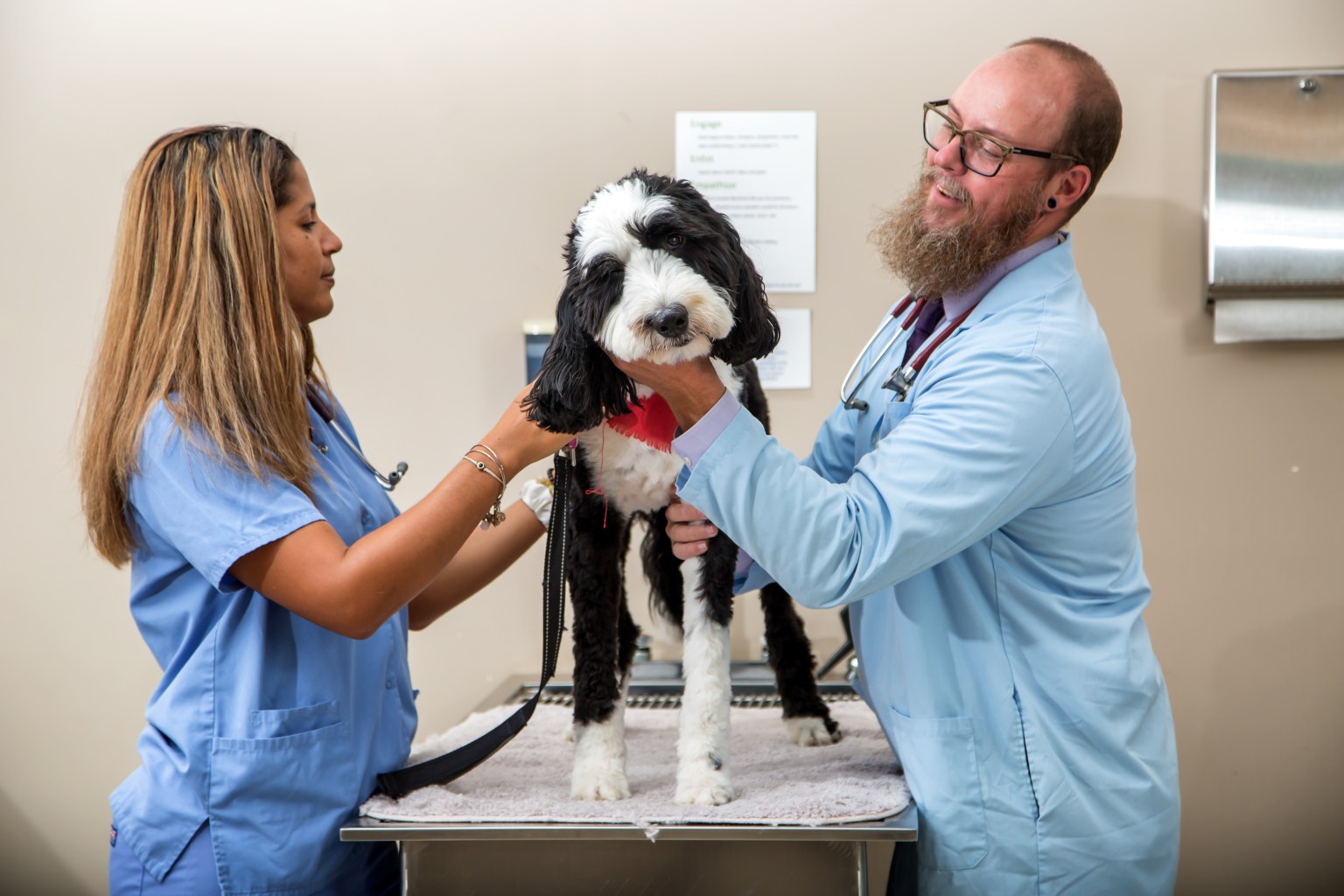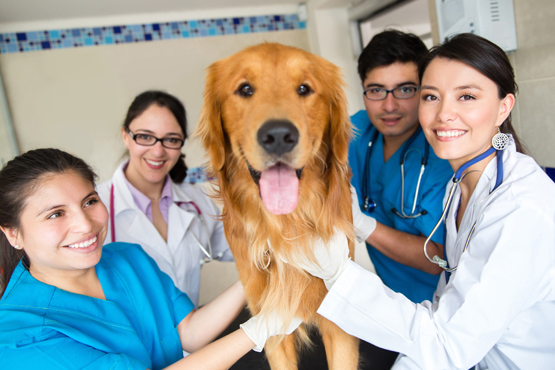Essential points to know before meeting a Veterinary Oncologist
Comprehensive Overview to the Providers Offered by a Veterinary Oncologist
Veterinary oncology encompasses a broad selection of solutions targeted at treating and detecting cancer in animals. Veterinary Oncologist. Oncologists employ advanced analysis methods and supply different treatment options tailored per animal's requirements. They likewise prioritize encouraging care and supply valuable sources for animal proprietors. Understanding these solutions is essential for making notified choices. What particular elements of vet oncology can especially influence a pet dog's treatment trip?
Understanding Veterinary Oncology
Vet oncology is a specialized field focused on detecting and treating cancer cells in pets. This technique encompasses a vast array of techniques, from clinical treatments such as chemotherapy and immunotherapy to surgical interventions intended at eliminating lumps. Veterinary oncologists are educated to recognize the distinct manifestations of cancer cells in various types, enabling them to customize treatment plans to private patients.
Along with standard treatments, veterinary oncology highlights helpful care, which plays an important role in boosting the lifestyle for affected animals. This consists of pain administration, dietary assistance, and palliative treatment choices. Cooperation with family pet proprietors is essential, as they are indispensable to decision-making regarding their animals' therapy paths. As research study advancements, vet oncology continues to evolve, providing brand-new hope and enhanced outcomes for animals identified with cancer cells. On the whole, this area is basic for resolving the intricacies of cancer in buddy animals.
Advanced Diagnostic Techniques
Advanced diagnostic strategies play an important duty in vet oncology, giving vital understandings right into the existence and degree of cancer in pets. Imaging modalities such as ultrasound, CT scans, and MRI are frequently used to visualize lumps and analyze their features. Furthermore, biopsy treatments are very important for obtaining tissue examples, permitting definitive medical diagnosis and customized therapy plans.
Imaging Modalities Utilized
Imaging methods play a vital function in the medical diagnosis and management of cancer cells in animals. Vet oncologists make use of numerous innovative imaging strategies to evaluate tumor size, existence, and metastasis. Radiography, or X-rays, offers a preliminary sight of bone and breast problems, while ultrasound supplies real-time imaging of soft cells, enabling for in-depth assessment of internal organs. Calculated tomography (CT) improves visualization of intricate physiological structures and enables 3D repairs, assisting in specific growth localization. Magnetic resonance imaging (MRI) is important for soft tissue differentiation, particularly in brain growths. In addition, nuclear medication methods such as positron discharge tomography (FAMILY PET) assistance determine metabolic task within lumps. Collectively, these techniques improve analysis accuracy, guiding reliable therapy methods for oncological patients.
Biopsy Treatments Clarified
Adhering to the initial analysis via imaging modalities, obtaining a conclusive diagnosis often requires tissue sampling with biopsy treatments. Veterinary oncologists use various biopsy techniques based on the growth's area and qualities. Fine needle ambition (FNA) is a minimally intrusive method that removes cells for cytological exam, perfect for surface masses. Core needle biopsies offer larger cells samples and are helpful for deeper lumps, permitting histopathological analysis. Surgical biopsies entail excising a portion or the entire growth, helping with detailed assessment. These treatments not just verify the existence of cancer yet additionally assist determine its kind and grade, directing treatment choices. Each biopsy strategy is picked thoroughly to stabilize analysis precision with client security and convenience.
Therapy Alternatives for Cancer in Pet dogs
When a family pet is diagnosed with cancer, a variety of therapy choices end up being readily available to assist enhance and manage the illness lifestyle. Vet oncologists generally recommend a multidisciplinary technique tailored to the specific pet's demands, which might consist of surgery, radiation treatment, immunotherapy, or different treatments.
Surgical procedure is typically utilized to eliminate growths and affected cells, possibly resulting in full remission sometimes. Radiation treatment aims to target and damage cancer cells, minimizing lump dimension and relieving symptoms - Veterinary Cancer Specialist. Immunotherapy uses the family pet's immune system to combat cancer cells more properly, while alternative therapies could include acupuncture or organic supplements to support overall wellness
Each treatment choice brings its own benefits and threats, and veterinary oncologists function carefully with animal owners to create a detailed strategy that aligns with the animal's certain diagnosis and the proprietor's desires. The utmost objective is to enhance the animal's convenience and high quality of life throughout their cancer cells journey.
Chemotherapy for Animals
Chemotherapy is an usual therapy choice for pets identified with cancer and is frequently used in conjunction with other treatments outlined by veterinary oncologists. This treatment involves the management of details drugs made to target and damage cancer cells, thus reducing lump dimension and avoiding the spread of the disease. Vet oncologists customize chemotherapy methods based upon the sort of cancer cells, the pet dog's general health and wellness, and the preferred treatment result.
Side impacts can occur, as these drugs might also influence healthy cells. Usual responses include nausea, throwing up, and short-term changes in cravings - Board Certified Veterinary Oncologist. Vet oncologists are equipped to take care of these side impacts properly, ensuring the pet dog's comfort throughout the treatment procedure. Regular surveillance via blood tests and follow-up appointments is necessary to examine the pet's response to chemotherapy and make necessary changes. Inevitably, chemotherapy can offer substantial advantages, improving the lifestyle for family pets facing cancer diagnoses

Radiation Treatment in Vet Medication
Radiation treatment acts as an effective treatment option for animals detected with localized growths, providing a targeted method to cancer monitoring. This strategy makes use of high-energy radiation to damage the DNA of cancer cells, preventing their capability to proliferate. It is particularly valuable for tumors that are not amenable to surgical removal or for cases where surgical procedure may not be possible because of the lump's area.
Vet oncologists customize radiation procedures based on tumor location, kind, and size, as well as the pet's general health and wellness. Treatment can be provided through exterior beam radiation or brachytherapy, each with distinctive benefits. Typically, multiple sessions are called for to make the most of effectiveness while decreasing negative effects.
Pets may experience temporary reactions such as skin inflammation, the general aim is to diminish growths and ease signs and symptoms, inevitably boosting the animal's diagnosis and quality of life. Accordingly, radiation treatment plays an essential function in complete cancer care.
Palliative Treatment and Lifestyle
Palliative care in vet oncology focuses on boosting the quality of life for animals encountering terminal illnesses, making sure convenience and dignity in their final days. This customized strategy focuses on pain monitoring, symptom control, and emotional support. Veterinary oncologists analyze each family pet's private requirements, tailoring treatments to minimize pain and enhance general well-being.
Strategies might consist of carrying out medications for discomfort relief, taking care of queasiness, and resolving various other traumatic signs. In addition, nutritional support is frequently given to keep strength and enhance cravings. The psychological aspect of palliative care is just as essential; developing a tranquil environment helps in reducing anxiety for both pet dog and owner.
Inevitably, the goal of palliative treatment is to enable pets to appreciate their continuing to be time with as much joy and dignity as feasible. By concentrating on convenience and top quality of life, veterinary oncologists play an essential duty in making sure that pets and their Veterinary Cancer Specialist families navigate this challenging trip with empathy and understanding.
Support for Pet Owners Throughout Treatment

Psychological Advice for Owners
Charting the psychological landscape during a family pet's cancer cells therapy can be a frustrating experience for proprietors. The unpredictability surrounding medical diagnosis and diagnosis can bring about feelings of stress and anxiety, unhappiness, and vulnerability. Veterinary oncologists recognize the value of psychological support and typically give assistance to help owners navigate this challenging journey. Communication is essential; going over therapy alternatives and potential results can relieve some fears. Additionally, using confidence that emotional reactions are legitimate fosters an encouraging setting. Many oncology facilities might also recommend assistance teams or counseling solutions tailored for family pet owners, facilitating common experiences. Motivating owners to focus on self-care throughout this moment is crucial, as their emotional wellness straight influences their animal's convenience and total therapy experience.

Resources and Educational Materials
Steering through the complexities of a family pet's cancer therapy can be intimidating for proprietors, making access to educational products and dependable resources important. Veterinary oncologists commonly provide an array of handouts, sales brochures, and online materials that describe therapy choices, potential adverse effects, and care approaches. These sources assist empower and demystify the procedure pet proprietors to make educated choices. In addition, many oncology centers offer accessibility to sustain groups and online forums where owners can connect with others dealing with comparable difficulties, cultivating a feeling of area. Educational workshops and webinars carried out by vet professionals better improve understanding, making sure that owners are well-appointed to navigate their pet dog's trip through cancer treatment with confidence and expertise.
Regularly Asked Concerns
Exactly How Can I Prepare My Pet Dog for a Veterinary Oncology Visit?
Preparing a pet for a veterinary oncology check out entails gathering medical documents, keeping in mind signs, and guaranteeing the pet is comfy. A calm behavior and familiar products can aid relieve anxiety throughout the consultation.
What Are the Indicators My Animal May Have Cancer Cells?
Indications that a family pet may have cancer cells consist of inexplicable weight reduction, relentless vomiting or looseness of the bowels, uncommon swellings or swellings, sleepiness, adjustments in cravings, trouble breathing, and changes in behavior. Motivate vet interest is crucial.
Exactly How Can I Assistance My Pet Emotionally Throughout Treatment?
Supporting an animal psychologically during treatment includes providing comfort, maintaining routines, providing gentle affection, and guaranteeing a tranquil setting. Involving in peaceful play and regular friendship assists ease tension and fosters a complacency.
Exist Alternative Therapies for Animals With Cancer?
Alternate treatments for family pets with cancer include acupuncture, herbal treatments, and nutritional assistance. These approaches might enhance traditional treatments, advertising total well-being. Consulting with a vet is necessary for risk-free and reliable assimilation of different therapies.
What Costs Should I Anticipate for Vet Oncology Services?
The anticipated expenses for veterinary oncology services can differ considerably, often affected by diagnostics, treatments, and recurring care. Family pet owners ought to get ready for costs varying from assessments to specialized therapies, reflecting the complexity of cancer cells administration.
Partnership with pet dog owners is essential, as they are integral to decision-making concerning their family pets' therapy paths. Each treatment option carries its own advantages and threats, and vet oncologists function very closely with family pet proprietors to develop an extensive plan that straightens with the pet dog's particular diagnosis and the owner's wishes. Pet dogs may experience momentary responses such as skin irritability, the general goal is to diminish tumors and ease symptoms, inevitably boosting the family pet's diagnosis and high quality of life. Support for pet proprietors throughout treatment is essential in steering via the emotional challenges linked with an animal's cancer medical diagnosis. Preparing an animal for a vet oncology go to includes celebration medical documents, noting signs, and making sure the pet is comfortable.